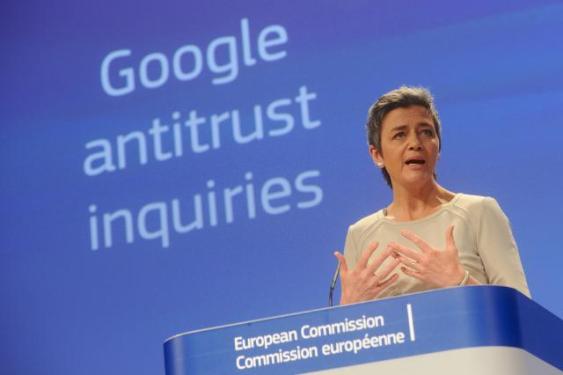In a blog post late last week Google Senior Vice President and General Counsel Kent Walker made it very clear that Alphabet (Google’s parent company) isn’t going to take the European Unions allegations about Android lying down.
In April 2015 the EU raised certain objections to Google trying to muscle in on the fact that it owns Android, and that it was forcing manufacturers to put Google Apps on their devices by default. But Walker says otherwise:
“No manufacturer is obliged to preload any Google apps on an Android phone. But we do offer manufacturers a suite of apps so that when you buy a new phone you can access a familiar set of basic services.”
And that’s essentially the case in a nutshell. Walker goes on to compare what Google does with what Apple and Microsoft currently do:
“Android’s competitors, including Apple’s iPhone and Microsoft’s Windows phone, not only do the same, but they allow much less choice in the apps that come with their phones. On Android, Google’s apps typically account for less than one-third of the preloaded apps on the device (and only a small fraction of device memory). A consumer can swipe away any of our apps at any time. And, uniquely, hardware makers and carriers can pre-install rival apps right next to ours. In competition-speak, that means there’s no “foreclosure”.”
But the EU also made a strange point, saying that Android doesn’t compete with Apple’s iOS. I say strange because the general public seems to agree with me. In a survey launched by the European Commission, 89% of the respondents said that Android and Apple’s iOS do, in fact, compete with each other. Google has also given other examples from the viewpoints of Apple itself, Samsung, developers and users.
But those are just two points in the original Statement of Objections that the EC has issued to Alphabet, Inc. Another one states the following:
“Google has abused its dominant position by systematically favouring its own comparison shopping service in its general search results.”
Google’s response to that, as given by a spokesperson earlier this month was this:
“We remain confident that these claims lack evidence and are wrong on the facts, the law, and the economics. The surest signs of dynamic competition in any market are low prices, abundant choices, and constant innovation — and that’s a great description of shopping on the internet today.”
But that’s not the end of the allegations. The EC also brought to bear some allegations against AdSense for Search, which places contextual ads near the top of search results pages.
Here’s Google’s response to that:
“Our text ads help websites generate income and have always faced strong competition from other ad formats, so we disagree with the Commission’s assessment. Nevertheless, even before the Statement of Objections was filed, we changed practices the Commission takes issue with, so we hope to resolve this case quickly.”
So on that front alone, despite being in disagreement with the EC, Google did tweak some of the their settings. And from what the spokesperson said, it seems they did it even before the EC brought it up. That’s possibly a pre-emptive move by Google, but it doesn’t seem to have helped the case much.
On the Android case, Google was given a deadline of November 11 to respond, which they have done as of November 10. Now we’ll have to wait and see what the EC does in response to Google’s statement that was filed with them last week.
So the big question now is whether or not Google is using unfair practices to push its product agenda into the Android ecosystem. But Apple is certainly doing it because iOS and macOS are proprietary platforms, and Windows continues to do it for Windows 10 Mobile devices. But the problem with Android seems to be that, although owned by Google, it was designed to be an open source platform that any device maker could take and then customized for their own purposes.
In the final analysis, it seems like the EC is getting pressure from smaller groups with vested interests, such as local traders and Europe-based business and website owners. It’s unclear at this point where the accusations originated, but it’s clear that the EC is taking it upon itself to fight the cause. Unfortunately, Alphabet is on the receiving end of that fight. If things go the EC way, Google could be looking at billions of dollars in fines, as well as being forced to make several changes to the way they offer their apps on Google Play.
Alphabet is the world’s second largest company by market capitalization, and very close to Apple, Inc. As of 2016 Google already crossed Apple’s market cap once, in February, and both their numbers are running close to each other.
But in the case of Alphabet versus the European Commission, it would seem that the former is the David and the latter is the Goliath. Can Alphabet defeat the EC on this? Probably not without making several key concessions. Follow us for the latest news in this increasingly hot debate between Alphabet and the EC.
Thanks for reading our work! Please bookmark 1redDrop.com to keep tabs on the hottest, most happening tech and business news from around the world. On Apple News, please favorite the 1redDrop channel to get us in your news feed.



